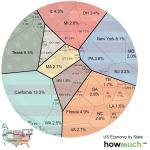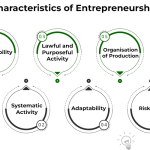Stefanie Stantcheva, a renowned Harvard economist, has recently been honored with the prestigious John Bates Clark Medal for her groundbreaking contributions to economic insights surrounding tax policy and public finance. As the Nathaniel Ropes Professor of Political Economy, Stantcheva’s research delves into the intricate relationship between tax policy impact and innovation, making her stand out among her peers. Her findings reveal how tax systems can either bolster or hinder economic growth, an essential consideration for policymakers today. During her acceptance speech, Stantcheva expressed gratitude for the recognition, emphasizing her passion for understanding the dynamics of public finance. This accolade marks a significant milestone in her career, positioning her as a critical voice in contemporary economic discussions.
In the realm of economic studies, Stefanie Stantcheva’s recent accolade brings significant attention to her innovative perspectives on taxation and its effects on economic behavior. As a leading figure in the analysis of fiscal policies, her work contributes essential understandings in public finances and strategies for promoting innovation. Stantcheva’s research not only highlights the necessity for effective tax frameworks but also aligns with current debates on how economic incentives shape societal outcomes. This type of analysis is vital for economists and policymakers alike, as it provides critical context for improving tax regulations and fostering a thriving economy. By addressing the nuances of tax implications, Stantcheva’s research stands to influence future economic policy formulation.
Stefanie Stantcheva: A Trailblazer in Public Finance Research
Stefanie Stantcheva’s recent accolade, the John Bates Clark Medal, underscores her tremendous impact on economic scholarship, particularly in the realm of public finance research. This prestigious recognition is awarded to economists under the age of 40 who have made significant contributions to their fields, and Stantcheva’s work has certainly exemplified this. By focusing on the intricate relationships between tax policy and innovative economic behavior, she has pushed the boundaries of traditional economic thought, offering fresh perspectives that resonate within academia and beyond.
Her pioneering research not only enhances our understanding of how tax structures influence economic activity but also provides valuable insights into the broader implications of taxation on society. Stantcheva’s assertion that the tax system can ‘make or break an economy’ highlights the critical role effective tax policy plays in not just fostering innovation, but also in shaping societal attitudes towards economic engagement. Through her thorough inquiry into the mechanics of taxation, she assists policymakers in crafting systems that align more closely with desired economic outcomes.
Impact of Tax Policy on Innovation: Insights from Recent Research
Stantcheva’s groundbreaking paper, “Taxation and Innovation in the 20th Century,” co-authored with esteemed colleagues, sheds light on how innovation behaves in response to variations in tax policy. One of the pivotal findings reveals a high elasticity in innovation to tax changes, suggesting that when taxes are adjusted, the levels of creativity and invention fluctuate significantly. This correlation underscores the crucial notion that tax incentives can either motivate or hinder technological progress and economic dynamism.
Furthermore, the research convincingly demonstrates that while increased taxation may reduce the quantity of innovations produced, the quality of the inventions tends to remain unaffected. This nuanced insight offers a strategic angle for policymakers who must balance revenue generation with the encouragement of advanced technologies. By carefully designing tax frameworks that minimize discouragement of innovation while still fulfilling public finance needs, governments can stimulate economic growth and innovation simultaneously.
Examining the results from Stantcheva’s extensive studies gives us profound insights into the optimization of tax systems for better economic outcomes. Such findings are vital as they provide empirical evidence that can guide legislative measures aimed at promoting a robust, innovative economy.
Stefanie Stantcheva and the Future of Economic Research
As a Harvard economist, Stefanie Stantcheva stands at the forefront of economic research that intersects various critical issues facing society today. Through her leadership of the Social Economics Lab, she is pushing the envelope on exploring how emotional factors and cognitive biases influence economic decision-making. This departure from purely quantitative analysis towards a more holistic understanding of economic behaviors marks a significant evolution in economic research.
Moving forward, the lab’s research initiatives are set to address pressing topics like trade dynamics, immigration policy, climate change implications, and social mobility. Each of these areas presents rich opportunities for analysis that can inform more equitable and sustainable policy formulation. Stantcheva’s commitment to understanding the interplay of economic conditions and human psychology positions her to redefine how we interpret economic challenges, ultimately influencing public discourse and policy on multiple fronts.
Recognizing Contributions to Economics: Celebrating a Harvard Star
The recognition of Stefanie Stantcheva by the American Economic Association serves to highlight the exceptional talent emerging from academic institutions like Harvard. The John Bates Clark Medal is more than just an accolade; it reflects the vibrancy of the economics field and the critical contributions made by younger scholars. Stantcheva’s colleagues, including fellow economists and department heads, acknowledge her research’s profound impact and celebrate her historic win not just as a personal achievement, but as a reflection of the excellence of Harvard’s economics program.
The celebration of her achievements emphasizes the importance of fostering new ideas and fresh perspectives in economics, especially during times of rapid change in global markets and societal structures. Recognizing individuals like Stantcheva motivates the next generation of economists to delve into vital areas of research, ensuring that economic theories continue to evolve alongside present-day challenges.
The Role of Innovation in Economic Growth: Lessons from Stantcheva’s Findings
Stantcheva’s research provides substantial evidence regarding the critical role that innovation plays in driving economic growth. Her findings suggest that fostering an environment conducive to innovation is essential for maximizing economic potential. By exploring the effects of tax policy on innovation, she reveals how appropriate fiscal incentives can spur entrepreneurial activities and technological advancements, ultimately benefiting the economy at large.
Understanding the dynamics of innovation and taxation reveals a pathway for policymakers to refine their approaches to economic development. As Stantcheva points out, an intelligently designed tax system can not only promote confidentiality in innovation but also align with broader economic goals, such as enhancing productivity and improving overall economic resilience.
Stefanie Stantcheva’s Interdisciplinary Approach to Economics
Stantcheva’s interdisciplinary approach combines insights from economics, psychology, and behavioral science, showcasing the importance of viewing economic phenomena through a multifaceted lens. By integrating emotional and cognitive dimensions into her research, she has opened avenues for understanding why individuals react differently to economic policies. This holistic perspective is particularly relevant in today’s complex economic landscape, where traditional economic models may fall short of accurately predicting real-world behavior.
Such an approach invites collaboration and dialogue between disciplines, which is crucial for tackling the multifaceted challenges of our time. As Stantcheva continues to explore the intersections of emotional reasoning and economic policy, she sets a precedent for future economists to adopt a more comprehensive framework for analyzing economic phenomena, ultimately enriching the field and its contributions to societal betterment.
Policy Implications of Stantcheva’s Research in Taxation and Economic Behavior
The implications of Stantcheva’s findings extend well beyond academic circles; they carry significant weight for policymakers looking to craft effective tax strategies. Through her research, particularly regarding the elasticity of innovation to tax changes, Stantcheva provides vital insights that can inform the development of tax systems geared towards maximizing innovation while ensuring equitable contributions from various sectors of the economy. Policymakers can leverage this information to create tax incentives that not only boost economic activity but also support long-term sustainability.
Moreover, her research prompts a re-evaluation of the current taxation structures, urging lawmakers to consider how their frameworks affect the innovative capacity of the economy. In aligning tax policy with the goal of fostering innovation, stakeholders can create an ecosystem where economic growth flourishes, proving that the design of tax systems has far-reaching implications for societal advancement.
Celebrating Economic Achievements: The Community’s Recognition of Stantcheva
The academic community came together to celebrate Stefanie Stantcheva’s achievements during the awarding ceremony of the John Bates Clark Medal. The event not only highlighted her contributions to economics but also reinforced the commitment of institutions like Harvard to nurturing talent in the field. Faculty members, students, and past winners of the award echoed their admiration for Stantcheva, emphasizing her brilliant work and the positive legacy she is building through her research.
Celebrations such as these play a vital role in motivating young economists and instilling a sense of pride within the community. By recognizing achievements that reflect innovative, relevant research, institutions can inspire a culture of excellence that encourages emerging scholars to pursue ambitious projects aimed at addressing economic challenges worldwide.
Future Research Directions: What Lies Ahead for Stantcheva
As she looks to the future, Stefanie Stantcheva’s research agenda promises exciting developments in the fields of taxation, innovation, and behavioral economics. With her continued commitment to exploring how psychological factors interact with economic policies, the potential for groundbreaking insights is substantial. Her work at the Social Economics Lab positions her uniquely, allowing her to experiment with new methodologies and theoretical frameworks that bridge gaps in traditional economic thought.
Moreover, as societal challenges evolve, her research will likely adapt to address pressing concerns, such as the implications of climate change on economic policy and migration dynamics. Stantcheva’s forward-thinking approach ensures that her work remains relevant and impactful, paving the way for future scholars to build upon her findings and continue enhancing our understanding of complex economic interactions.
Frequently Asked Questions
What contributions has Stefanie Stantcheva made to tax policy research?
Stefanie Stantcheva has significantly advanced research on tax policy, particularly through her work that examines how tax systems impact economic behavior and innovation. Her studies highlight how tax policy can incentivize or discourage innovation, demonstrating high elasticity in response to tax changes.
Why was Stefanie Stantcheva awarded the John Bates Clark Medal?
Stefanie Stantcheva was awarded the 2025 John Bates Clark Medal for her pioneering contributions to public finance and tax policy. This prestigious award recognizes her impactful research that delves into the relationship between taxation and innovation, as well as her insights into economic behavior.
How does Stefanie Stantcheva’s work influence public finance?
Stefanie Stantcheva’s research offers critical insights into public finance by analyzing how different tax policies can affect economic growth and innovation. Her findings suggest that well-designed tax systems can enhance economic activities, while poorly structured ones might hinder development.
What is the focus of Stefanie Stantcheva’s ‘Social Economics Lab’?
The Social Economics Lab, founded by Stefanie Stantcheva, focuses on understanding how individuals perceive economic issues and policies. The lab investigates topics such as the emotional influences on policy perceptions and the effects of zero-sum thinking on economic decision-making.
What key findings did Stefanie Stantcheva reveal in her paper ‘Taxation and Innovation in the 20th Century’?
In her 2022 paper, Stefanie Stantcheva and her co-authors found that innovation is highly elastic in response to tax policy changes. They concluded that while higher taxes can diminish the quantity of innovation, they do not inherently compromise the quality of innovations produced.
What is the significance of the John Bates Clark Medal in economics?
The John Bates Clark Medal is a prestigious award given to an American economist under the age of 40 who has made significant contributions to the field. It recognizes economists, like Stefanie Stantcheva, whose work has the potential to shape economic thought and policy.
How does Stefanie Stantcheva’s work relate to innovation and economic behavior?
Stefanie Stantcheva’s research addresses the critical links between tax policy, innovation, and economic behavior. She emphasizes how tax design can either promote or deter innovation, fundamentally impacting the overall economy and public welfare.
| Key Point | Detail |
|---|---|
| Award Received | John Bates Clark Medal from the American Economic Association in 2025, recognizing significant contributions to economics for under-40 economists. |
| Field of Work | Public finance, tax policy, innovation, and economic behavior. |
| Notable Research | In her 2022 paper, Stantcheva analyzed how tax policy influences innovation, showing high elasticity in response to tax changes. |
| Impact of Tax Policy | Higher taxes negatively affect the quantity of innovation while having a negligible effect on the quality of inventions. |
| Initiatives | Founded the Social Economics Lab in 2018, addressing topics like trade, immigration, climate change, and social mobility. |
| Future Focus | Investigating the interplay between emotions and economic policies, as well as mindsets like zero-sum thinking. |
Summary
Stefanie Stantcheva’s recent recognition with the John Bates Clark Medal underscores her influential contributions to the field of economics, particularly in tax policy and innovation. As a highly respected economist at Harvard, she continues to pave the way for innovative research that examines the complex relationship between taxation and economic behavior. Her work not only emphasizes the vital role of effective tax systems in fostering innovation but also highlights the ongoing relevance of economic research in addressing contemporary societal challenges.







